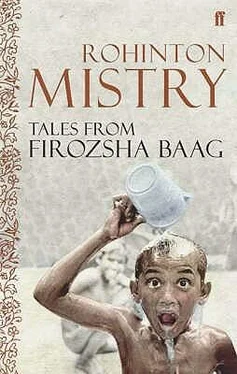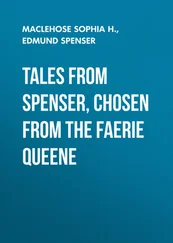Rohinton Mistry - Tales From Firozsha Baag
Здесь есть возможность читать онлайн «Rohinton Mistry - Tales From Firozsha Baag» весь текст электронной книги совершенно бесплатно (целиком полную версию без сокращений). В некоторых случаях можно слушать аудио, скачать через торрент в формате fb2 и присутствует краткое содержание. Год выпуска: 2006, Издательство: Faber & Faber, Жанр: Современная проза, на английском языке. Описание произведения, (предисловие) а так же отзывы посетителей доступны на портале библиотеки ЛибКат.
- Название:Tales From Firozsha Baag
- Автор:
- Издательство:Faber & Faber
- Жанр:
- Год:2006
- ISBN:нет данных
- Рейтинг книги:3 / 5. Голосов: 1
-
Избранное:Добавить в избранное
- Отзывы:
-
Ваша оценка:
- 60
- 1
- 2
- 3
- 4
- 5
Tales From Firozsha Baag: краткое содержание, описание и аннотация
Предлагаем к чтению аннотацию, описание, краткое содержание или предисловие (зависит от того, что написал сам автор книги «Tales From Firozsha Baag»). Если вы не нашли необходимую информацию о книге — напишите в комментариях, мы постараемся отыскать её.
Tales From Firozsha Baag — читать онлайн бесплатно полную книгу (весь текст) целиком
Ниже представлен текст книги, разбитый по страницам. Система сохранения места последней прочитанной страницы, позволяет с удобством читать онлайн бесплатно книгу «Tales From Firozsha Baag», без необходимости каждый раз заново искать на чём Вы остановились. Поставьте закладку, и сможете в любой момент перейти на страницу, на которой закончили чтение.
Интервал:
Закладка:
Jamshed was my brother’s friend. The three of us went to the same school. Jamshed and my brother, Percy, both four years older than I, were in the same class, and spent their time together. They had to part company during lunch, though, because Jamshed did not eat where Percy and I did, in the school’s drillhall-cum-lunchroom.
The tiffin carriers would stagger into the school compound with their long, narrow rickety crates balanced on their heads, each with fifty tiffin boxes, delivering lunches from homes in all corners of the city. When the boxes were unpacked, the drillhall would be filled with a smell that is hard to forget, thick as swill, while the individual aromas of four hundred steaming lunches started to mingle. The smell must have soaked into the very walls and ceiling, there to age and rancidify. No matter what the hour of the day, that hot and dank grotto of a drillhall smelled stale and sickly, the way a vomit-splashed room does even after it is cleaned up.
Jamshed did not eat in this crammed and cavernous interior. Not for him the air redolent of nauseous odours. His food arrived precisely at one o’clock in the chauffeur-driven, air-conditioned family car, and was eaten in the leather-upholstered luxury of the back seat, amid this collection of hyphenated lavishness.
In the snug dining-room where chauffeur doubled as waiter, Jamshed lunched through his school-days, safe from the vicissitudes of climate. The monsoon might drench the tiffin carriers to the bone and turn cold the boxes of four hundred waiting schoolboys, but it could not touch Jamshed or his lunch. The tiffin carriers might arrive glistening and stinking of sweat in the hot season, with scorching hot tiffin boxes, hotter than they’d left the kitchens of Bombay, but Jamshed’s lunch remained unaffected.
During the years of high school, my brother, Percy, began spending many weekend afternoons at his friend’s house at Malabar Hill. Formerly, these were the afternoons when we used to join Pesi paadmaroo and the others for our most riotous times in the compound, the afternoons that the adults of Firozsha Baag would await with dread, not knowing what new terrors Pesi had devised to unleash upon the innocent and the unsuspecting.
But Percy dropped all this for Jamshed’s company. And when he returned from his visits, Mummy would commence the questioning. What did they eat? Was Jamshed’s mother home? What did the two do all afternoon? Did they go out anywhere? And so on.
Percy did not confide in me very much in those days. Our lives intersected during the lunch routine only, which counted for very little. For a short while we had played cricket together with the boys of Firozsha Baag. Then he lost interest in that too. He refused to come when Daddy would take the whole gang to the Marine Drive maidaan on Sunday mornings. And soon, like all younger brothers, I was seen mainly as a nuisance.
But my curiosity about Percy and Jamshed was satisfied by Mummy’s interrogations. I knew that the afternoons were usually spent making model airplanes and listening to music. The airplanes were simple gliders in the early years; the records, mostly Mantovani and from Broadway shows. Later came more complex models with gasoline engines and remote control, and classical music from Bach to Poulenc.
The model-airplane kits were gifts from Jamshed’s itinerant aunties and uncles, purchased during business trips to England or the U.S. Everyone except my brother and I seemed to have uncles and aunties smitten by wanderlust, and Jamshed’s supply line from the western world guaranteed for him a steady diet of foreign clothes, shoes, and records.
One Saturday, Percy reported during question period that Jamshed had received the original soundtrack of My Fair Lady . This was sensational news. The LP was not available in Bombay, and a few privately imported or “smuggled” copies, brought in by people like Jamshed’s relatives, were selling in the black market for two hundred rupees. I had seen the records displayed side by side with foreign perfumes, chocolates, and cheeses at the pavement stalls of smugglers along Flora Fountain.
Sometimes, these stalls were smashed up during police raids. I liked to imagine that one day a raid would occur as I was passing, and in the mêlée and chaos of the clash, My Fair Lady would fly through the air and land at my feet, unnoticed by anyone. Of course, there wasn’t much I could have done with it following the miracle, because our old gramophone played only 78 rpms.
After strenuous negotiations in which Mummy, Percy, and I exhausted ourselves, Percy agreed to ask his friend if I could listen to the album. Arrangements were made. And the following Saturday we set off for Jamshed’s house. From Firozsha Baag, the direction of Malabar Hill was opposite to the one we took to go to school every morning, and I was not familiar with the roads the bus travelled. The building had a marble lobby, and the lift zoomed us up smoothly to the tenth floor before I had time to draw breath. I was about to tell Percy that we needed one like this in Firozsha Baag, but the door opened. Jamshed welcomed us graciously, then wasted no time in putting the record on the turntable. After all, that was what I had come for.
The afternoon dragged by after the soundtrack finished. Bored, I watched them work on an airplane. The box said it was a Sopwith Camel. The name was familiar from the Biggies books Percy used to bring home. I picked up the lid and read dully that the aircraft had been designed by the British industrialist and aeronautical engineer, Thomas Octave Murdoch Sopwith, born 1888, and had been used during the First World War. Then followed a list of the parts.
Later, we had lunch, and they talked. I was merely the kid brother, and nobody expected me to do much else but listen. They talked of school and the school library, of all the books that the library badly needed; and of the ghatis who were flooding the school of late.
In the particular version of reality we inherited, ghatis were always flooding places, they never just went there. Ghatis were flooding the banks, desecrating the sanctity of institutions, and taking up all the coveted jobs. Ghatis were even flooding the colleges and universities, a thing unheard of. Wherever you turned, the bloody ghatis were flooding the place.
With much shame I remember this word ghati . A suppurating sore of a word, oozing the stench of bigotry. It consigned a whole race to the mute roles of coolies and menials, forever unredeemable.
During one of our rare vacations to Matheran, as a child, I watched with detachment while a straining coolie loaded the family’s baggage on his person. The big metal trunk was placed flat on his head, with the leather suitcase over it. The enormous hold-all was slung on his left arm, which he raised to steady the load on his head, and the remaining suitcase went in the right hand. It was all accomplished with much the same approach and consideration used in loading a cart or barrow — the main thing was balance, to avoid tipping over. This skeletal man then tottered off towards the train that would transport us to the little hill station. There, similar skeletal beings would be waiting with rickshaws. Automobiles were prohibited in Matheran, to preserve the pastoral purity of the place and the livelihood of the rickshawallas.
Many years later I found myself at the same hill station, a member of my college hikers’ club, labouring up its slopes with a knapsack. Automobiles were still not permitted in Matheran, and every time a rickshaw sped by in a flurry of legs and wheels, we’d yell at the occupant ensconced within: “Capitalist pig! You bastard! Stop riding on your brother’s back!” The bewildered passenger would lean forward for a moment, not quite understanding, then fall back into the cushioned comfort of the rickshaw.
Читать дальшеИнтервал:
Закладка:
Похожие книги на «Tales From Firozsha Baag»
Представляем Вашему вниманию похожие книги на «Tales From Firozsha Baag» списком для выбора. Мы отобрали схожую по названию и смыслу литературу в надежде предоставить читателям больше вариантов отыскать новые, интересные, ещё непрочитанные произведения.
Обсуждение, отзывы о книге «Tales From Firozsha Baag» и просто собственные мнения читателей. Оставьте ваши комментарии, напишите, что Вы думаете о произведении, его смысле или главных героях. Укажите что конкретно понравилось, а что нет, и почему Вы так считаете.












